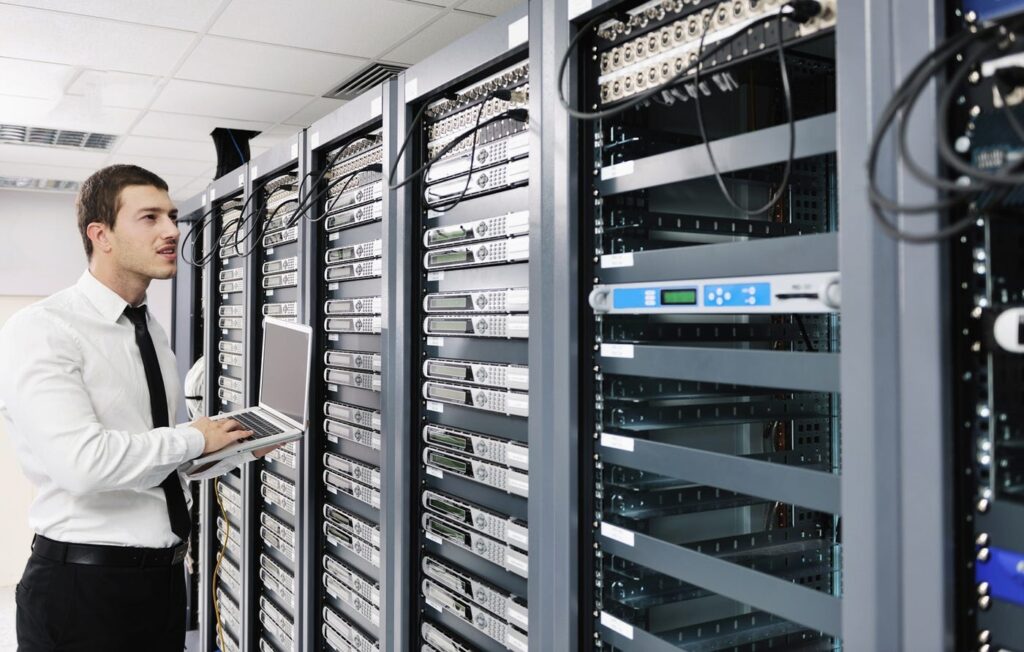
To fully leverage Dedicated server hosting, you need to have a comprehensive setup for your hosting infrastructure. You need to think about various aspects right from integration of web domain and hosting to configuring settings to ensure optimal performance.
This unending list also includes selecting and optimising hardware resources, implementing robust security, integrating software, etc. A perfect hosting infrastructure entails meticulous attention to detail.
Therefore, let us first understand the basic system requirement of a dedicated server for the best optimised hosting infrastructure.
What Do You Mean By Hosting a Dedicated Server?
Hosting a dedicated server means an entire server is dedicated to a website/app or infrastructure. This gives you the following advantages-
- The entire server is dedicated; you don’t have to share resources such as CPU RAM or disk storage, ensuring the highest performance speed and uptime.
- There are no security issues as hosting is dedicated and not shared, therefore decreasing the security risk.
- There is server isolation, so you can easily customise the whole infrastructure, including your hardware, without much dependency.
- You get complete root access, which allows you to configure server settings according to your requirements.
Basic System Requirement of Dedicated Server Hosting
- Control Processing Unit
Like a computer even your dedicated server has a CPU as a part of its resources. The CPU is formed by several cores which do all the needed work.
You need to decide the particulars of your server, which will ultimately help you decide the total number of cores you need. There are two basic types of processors available i.e., Intel and AMD, both offering viable options depending on your budgetary needs.
The aspects to keep in mind when selecting your CPU are processing speed, reliability, and cost. The most performing CPUs ensure durability and efficiency, although at a high initial investment.
It is also important to note that multi-core processors, though offering the highest performance, often operate at slightly lower clock speeds compared to single-core variants.
Therefore, it is always best to get a processor with more than 8 cores and a speed of more than 3 GHz for optimal performance.
- Control Panel
A control panel is a remote control that helps you manage your server hosting. With the help of it, you can download software and apps, manage email accounts, upload files and data, configurations, and do much more.
It helps in data-to-day server management and its optimisation. Therefore, it is always advisable to go for a control panel that offers a simple interface, as it makes maintenance easy without the need for tech know-how.
- RAM
Keep one thing in mind: the more RAM, the faster the server speed. It is because of RAM the server can perform different tasks at once.
Therefore, if your dedicated server has high traffic, then 16 or 32 GB of RAM is good enough. Also, if you need more, you can always go for 128 / 256GB.
- SSD/HDDs Storage
HDDs and SSD are storage of your dedicated server. Therefore, based on your needs and specifications, you need to decide on your server storage.
HDDs refer to the hard disks which offer ample storage, making them suitable for local backup. It is a cost-effective option to provide storage in terabytes. However, due to its moving disk, it is comparatively slower, less efficient, and prone to the risk of wear and tear.
On the other SSDs offer good performance but are comparatively high prices. It doesn’t have disk moving, making it more efficient and less prone to wear and tear.
Conclusion
These are the key specifications you need to keep in mind when buying your dedicated server in Australia.
Knowing them well empowers you to make well-informed decisions about your web hosting infrastructure.
